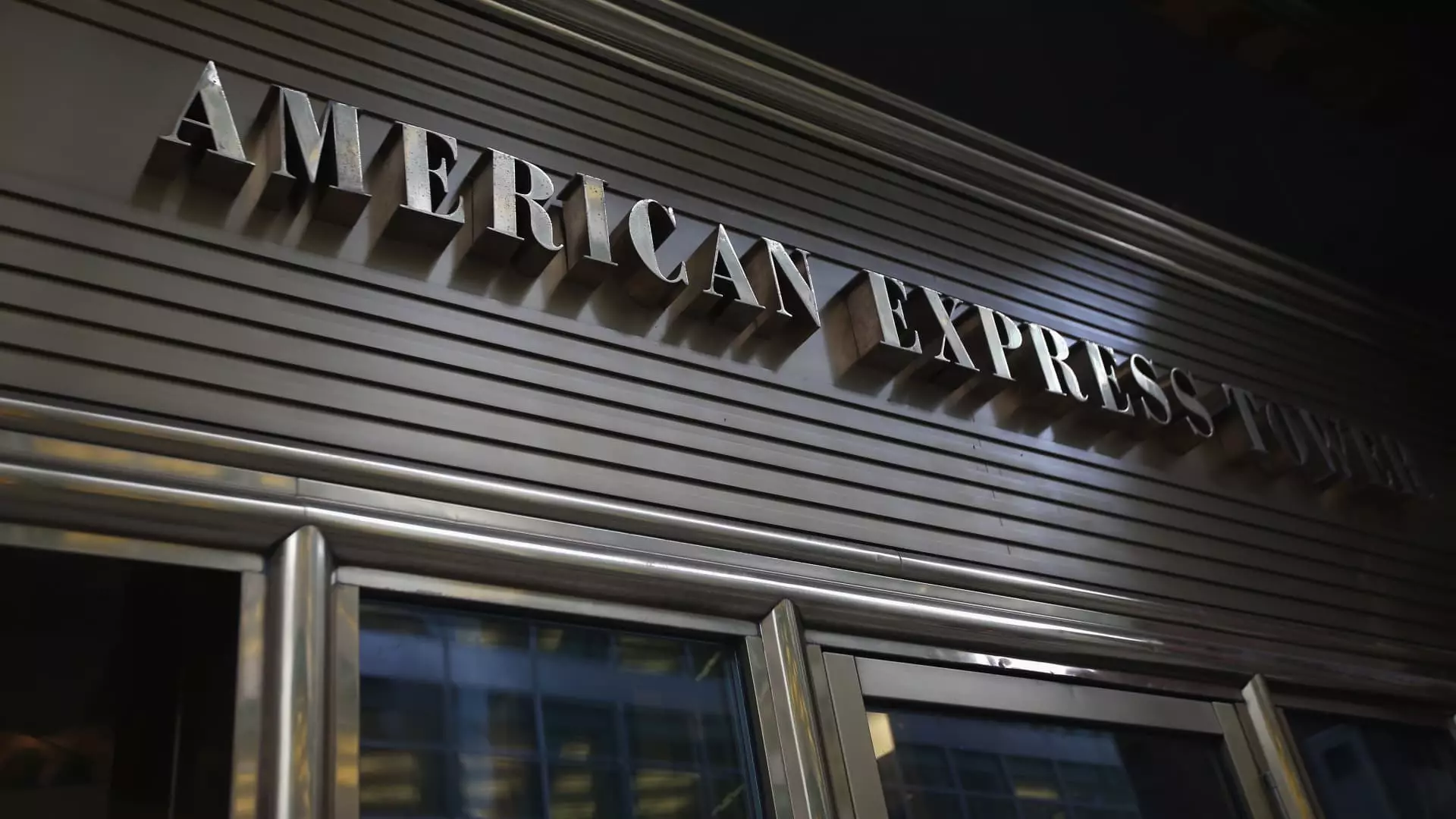In an environment rife with economic uncertainty marked by fluctuating stock prices and looming tariffs, American Express (AmEx) is exhibiting a striking resilience, fueled predominantly by its affluent clientele. Chief Financial Officer Christophe Le Caillec recently unveiled data that highlights a 6% growth in transaction volumes, adjusted to 7% when accounting for the leap year. This robust performance in the first quarter not only surmounts industry expectations but also illustrates a fascinating trend among younger consumers, who are driving a significant portion of this growth.
Rather than retracting their spending habits in response to financial strains, younger demographics—namely Millennials and Gen Z—have shown a remarkable 14% increase in card spending. Such data reveals a generational divergence that is worth pondering; while older generations—Gen X and Baby Boomers—are exhibiting caution, restricting their expenditures to increases of 5% and 1% respectively, younger consumers appear less tethered to economic anxieties. The question remains: what does this signify about our future economic landscape?
Consumer Confidence in Experiential Spending
One of the more compelling segments of this report is the uptick in restaurant spending, which climbed by 8%. This category transcends mere transaction data; it serves as a psychological barometer for consumer confidence. Dining out is often considered the epitome of discretionary spending—it’s the last expense one might rush to commit when facing economic adversity. Therefore, the positive growth in this area could suggest that AmEx’s customer base is not just surviving but thriving in these turbulent times, boldly indulging in experiences rather than just material goods.
Conversely, the airline sector paints a different picture, showcasing a disconcerting growth rate of only 3%. This sector’s sluggishness, particularly after a vibrant fourth quarter, raises concerns about the constraints that tariffs may impose on travel. As companies begin to pull back their earnings projections, the aviation industry stands at a crossroads, with many American consumers evidently trapped in a conundrum of wanting to travel but being hesitant due to rising costs dictated by external factors.
A Cautionary Tale from the Lesser Hemisphere of Credit
While American Express basked in the gravitas of its affluent customer base, Synchrony Financial—a company entrenched in providing retail credit—has sounded the alarm on a potential spending slowdown. This dichotomy paints a vivid contrast: on one side, AmEx represents the unwavering elite, while on the other, Synchrony reflects the challenges facing middle- and lower-income consumers. The question begs: can this bifurcation in spending habits sustain itself in the long run?
Le Caillec’s assertions about the stability of AmEx customers offer an encouraging outlook amid a world filled with skepticism over economic policies and impending recessions. Still, this optimism calls for a critical examination of the broader implications. If the wealthier segment continues to navigate these turbulent waters untouched, what happens to those left behind? As one group flourishes and the other falters, the socio-economic divide only becomes more pronounced, presenting a harrowing snapshot of contemporary American values where wealth and opportunity are not evenly distributed.
American Express may be reveling in its successes today, but the sustainability of such growth, amid a backdrop of tariff threats and consumer caution, is a narrative still unfolding. The credit landscape is shifting, and one cannot ignore the complexities entangled within these economic stories.


Leave a Reply